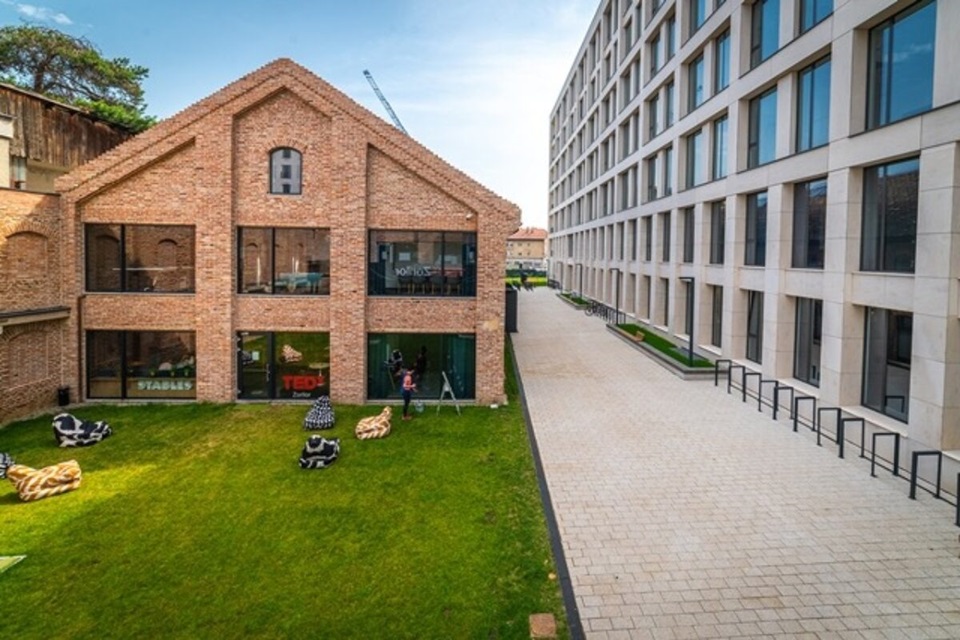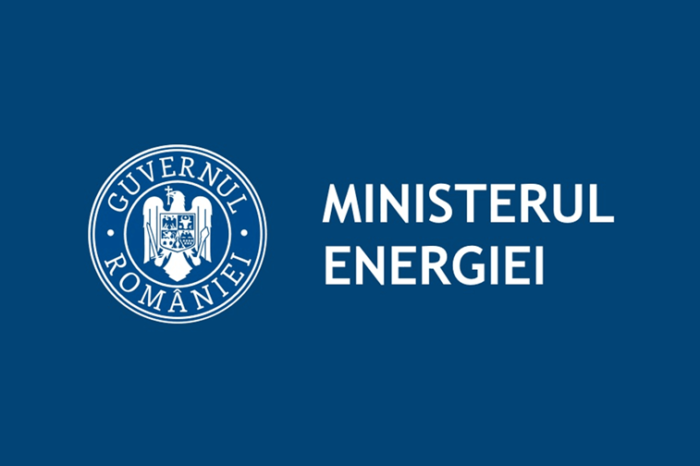INTERVIEW Andreea Paun, Griffes: “We aim to deepen our presence in regional markets, with increased market knowledge”

“Flexibility in lease agreements is a growing trend, with landlords offering shorter lease durations, options for expansion or contraction, and more adaptable terms. In 2024 we managed to secure for our clients customised lease structures to cater to their specific requests, while maintaining landlord’s visibility over the long term,” Andreea Paun, Managing Partner, Griffes told The Diplomat-Bucharest.
“For 2025, our primary goal is to build on the momentum of 2024 by continuing to lead in landlord representation and tenant advisory services. We aim to deepen our presence in regional markets, with increased market knowledge and an expanded team, to better serve our clients and capitalize on emerging opportunities in the real estate sector.
We plan to diversify further by exploring high-growth sectors like health-tech and logistics, which are increasingly demanding office and industrial spaces. Geographically, we are targeting growth in regional markets, in cities like Iasi and Brasov/Sibiu, which are becoming magnets for businesses due to their university talent pools and infrastructure improvements.”
What trends or shifts in the real estate market played the most significant role in achieving a record-breaking year in 2024?
The key trends on the office market, which had an impact on our activity in 2024, reflected a shift towards greater flexibility and efficiency in addressing changing workplace needs.
This shift translates to flexible lease terms, adaptable space sizes, and more accommodating landlords.
Flexibility in lease agreements is a growing trend, with landlords offering shorter lease durations, options for expansion or contraction, and more adaptable terms. In 2024 we managed to secure for our clients customised lease structures to cater to their specific requests, while maintaining landlord’s visibility over the long term.
Also, many companies are opting for smaller office spaces as they adapt to flexible working models. As a response, landlords are increasingly willing to partition larger office spaces into smaller units to accommodate diverse tenant requirements and attract and maintain good names in their portfolio. This offers businesses more options for scaling space up or down and increase overall usage of the space.
In addition, landlords are increasingly offering turnkey office spaces, meaning that they deliver fully finished, ready-to-use environments tailored to tenant needs. This trend helps tenants move in quickly without needing to manage construction or renovation, making office spaces more convenient and adaptable.
Above all, the desire of a premium space determined tenants to act and take advantage of market opportunities. High-quality, amenity-rich spaces in prime locations were in demand as companies seek to provide attractive work environments to draw employees back to the office.
These trends enabled us to close a significant volume of transactions, both in Bucharest and across regional markets, contributing to our record-breaking performance.
How did the Griffes team contribute to this accomplishment? Were there specific strategies or innovations that stood out?
Our team’s success emerged from a combination of market expertise, client-focused solutions, and a proactive approach to landlord and tenant representation. Key actions included leveraging exclusive mandates on over 130,000 sqm of prime office space in which we offered bespoke real estate solutions. Partnerships and a “client-first” mindset are the cornerstones of our business.
What are Griffes’ main objectives for 2025? Are you planning to surpass the 2024 record?
For 2025, our primary goal is to build on the momentum of 2024 by continuing to lead in landlord representation and tenant advisory services. We aim to deepen our presence in regional markets, with increased market knowledge and an expanded team, to better serve our clients and capitalize on emerging opportunities in the real estate sector. It is challenging to match the transactional volume of 2024, which will probably remain as a record, in a market we anticipate to shrink even further. We plan and already work on new transactions on the industrial market, both with land for development and leasing spaces for growth.
Are there plans to explore new sectors or geographic regions in 2025?
Yes, we plan to diversify further by exploring high-growth sectors like health-tech and logistics, which are increasingly demanding office and industrial spaces. Geographically, we are targeting growth in regional markets, in cities like Iasi and Brasov/Sibiu, which are becoming magnets for businesses due to their university talent pools and infrastructure improvements. In 2024, we successfully facilitated the entry of Copeland into the Cluj-Napoca office market. Building on this success, we aim to continue finding the right product for each of our clients, whether they are new entrants or seeking to optimize their existing spaces.
How are client needs evolving, and what steps is Griffes taking to stay ahead of these changes?
Clients are increasingly looking for adaptable solutions, personalized services, and strategic advice to navigate the complexities of the real estate market. There is no more “one size fits all”.
At Griffes, we stay ahead of these changes by closely working with various companies while they shift, by collaborating with developers with mostly, assist tenants, offering strategic consulting that integrates both market data and honest client feedback. Our goal is to remain a trusted advisor by anticipating and adapting to our clients’ evolving needs.
How do you see Griffes evolving over the next 3–5 years? Are there any long-term projects or goals in the pipeline?
In the next 3–5 years, Griffes will continue to focus on customised solutions for our clients, regional market expansion, and diversification of services.
One long-term goal is to support urban regeneration projects, similar to Record Park in Cluj-Napoca and Paltim in Timisoara, which transform underutilized spaces or obsolete neighbourhoods into thriving, lively communities. This offers us a sense of accomplishment and we feel a direct contribution, beyond the transactional role. We also aim to grow our exclusive portfolio, focusing on high-quality, innovative developments.
Our drive is to maintain Griffes as the go-to advisor for real estate consultancy, for any player in this market.
What advice would you offer to other real estate professionals looking to achieve similar success in today’s market?
I believe we can all collaborate more and foster constructive approaches for clients. Two heads are always better than one. Success in real estate requires balancing immediate opportunities with a forward-looking vision. Collaboration and transparency are essential for standing out in this competitive industry.
Griffes real estate advisory firm reports a record-breaking 85,000 sqm of office space transactions in 2024.
Griffes’ activity outside Bucharest accounted for 25 percent of its total transaction volume, with Cluj-Napoca leading the way. This city continued to attract investments, particularly from technology and IT companies looking to tap into its skilled talent pools and favorable business environments.
In Cluj-Napoca, Griffes facilitated the largest new office lease in the city over the past 5 years, a 10,000 sqm relocation for a leading technology company. Griffes also supported the entry of Copeland into the market, securing premium office space for their operations within Iulius Group’s portfolio.
Bucharest continued to dominate as Romania’s primary business hub, accounting for approximately 75 percent of Griffes’ total transaction volume in 2024. One of the most notable transactions was Genpact’s renewal of 30,000 sqm at Hermes Business Park, marking the largest office leasing deal in Bucharest in the last decade.
Additionally, Griffes facilitated significant relocations and new entries into Bucharest’s premium office spaces, particularly in buildings with green certifications and various amenities.
Approximately 36 percent of Griffes’ transactions involved such relocations, while 64 percent represented contract renewals, as businesses continued to adapt to evolving workplace needs.
















